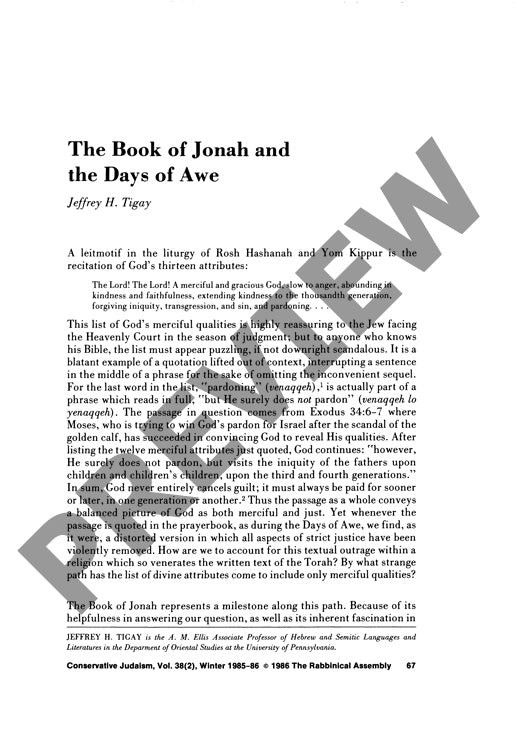The Book of Jonah and the Days of Awe
Couldn't load pickup availability
Why do Jews read the Book of Jonah on their holiest day of the year? The answer lies in a profound theological shift within Judaism regarding divine mercy and justice. At the heart of this evolution stands an apparent liturgical contradiction: while Exodus 34:6-7 presents God's thirteen attributes as both merciful and punitive, the High Holiday prayers notably omit all references to divine punishment. Through textual analysis and comparative religious scholarship, this research reveals how the Jonah narrative became a pivotal text that championed a revolutionary concept in ancient Near Eastern religion: the power of sincere repentance to avert divine punishment. Jonah's resistance to God's mercy toward Nineveh serves as a dramatic foil, highlighting Judaism's emerging emphasis on redemptive rather than retributive justice. Rabbinic interpretation ultimately resolved the liturgical contradiction by distinguishing between the penitent, who receive pardon, and the unrepentant, who face judgment. This theological development explains Jonah's position as the climactic biblical reading on Yom Kippur, offering hope for divine forgiveness to all who genuinely seek to return to righteous paths during the Days of Awe.

More Information
-
Physical Description
-
Publication Information
Published 1985-1986
ISBN
-
Publication Credits
Jeffrey Tigay

